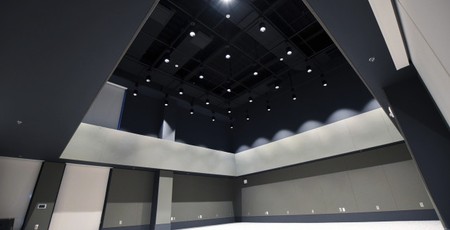MIT.nano, NCSoft fund AR, VR gaming research efforts
October 1, 2019 | 10:50
Companies: #massachusetts-institute-of-technology #mitnano-consortium #ncsoft

The Massachusetts Institute of Technology (MIT) has announced the launch of its MIT.nano Immersion Lab Gaming programme, in partnership with massively multiplayer online (MMO) game developer NCSoft.
In its position as a founding member of the MIT.nano Consortium at the Massachusetts Institute of Technology (MIT), South Korean game developer NCSoft - best known for its massively multiplayer online (MMO) projects including Guild Wars, Lineage, and Aion - has agreed to fund five projects in the fields of three- and four-dimensional data interaction, light field manipulation, and micro-display optics, all with a focus on their use in the gaming industry.
'New technologies and new paradigms of gaming will change the way researchers conduct their work by enabling immersive visualisation and multi-dimensional interaction,' says MIT.nano associate director Brian W. Anthony of the programme's focus. 'This year’s funded projects highlight the wide range of topics that will be enhanced and influenced by augmented and virtual reality.'
The five projects confirmed to receive seed grants from NCSoft through the program are: Professor Stefanie Mueller's project to develop 'a new type of gameplay with tighter virtual-physical connection' in which 'the player unlocks a physical template after completing a virtual challenge, builds a prop from this template, and then, as the game progresses, can unlock new functionalities to that same item'; Professor Luca Daniel and researcher Micha Feigin-Almon's joint project to 'compare the movements of trained and untrained individuals to learn the limits of the human body with the goal of generating elegant, realistic movement trajectories for virtual reality characters'; Professor Wojciech Matusik's project to 'adopt machine learning techniques for synthesis of phase-only holograms [to] display visually appealing three-dimensional objects'; Professor Fox Harrell's project to 'teach users how to recognise, cope with, and avoid committing microaggressions'; and Professor Juejun Hu's project to 'develop high-performance, ultra-thin immersive micro-displays for AR/VR applications' based on metasurface optics and offering a large continuous field of vision - up to 180 degrees, from the 45 degrees typical of today's waveguide augmented and virtual reality (AR and VR) displays.
In addition to the research funds, the grants include funds set aside to 'foster a community of collaborative users of MIT.nano's Immersion Lab,' the university's new two-story space dedicated to visualisation, augmented and virtual reality, and spatial data analysis efforts which is currently being outfitted with equipment and software with a view to opening in the current semester.

MSI MPG Velox 100R Chassis Review
October 14 2021 | 15:04









Want to comment? Please log in.